The AC vacuum pump is essential in removing unwanted pressure and moisture in the air conditioning system during maintenance. Thus, use only the ideal oil in your AC vacuum pump to ensure it works properly. So what exactly is the best oil for your AC vacuum pump? Here's what our research uncovered about this matter.
You should always refer to the owner's manual of your AC unit for an oil type recommendation from the manufacturer. The following are the most common oils that work best in your AC vacuum pump:
- Ester oil.
- Distilled oil.
- Hydrotreated oil.
- Single-distilled oil.
- Double-distilled oil.
- Triple-distilled oil.
- Mineral vacuum pump oil.
- Synthetic (Perfluoropolyether) oil.
Stay with us to learn more about the qualities of a good oil for your AC vacuum pump. Your AC vacuum pump doesn't only need the right oil to function properly, so we also share with you how you correctly service it. So keep on reading!
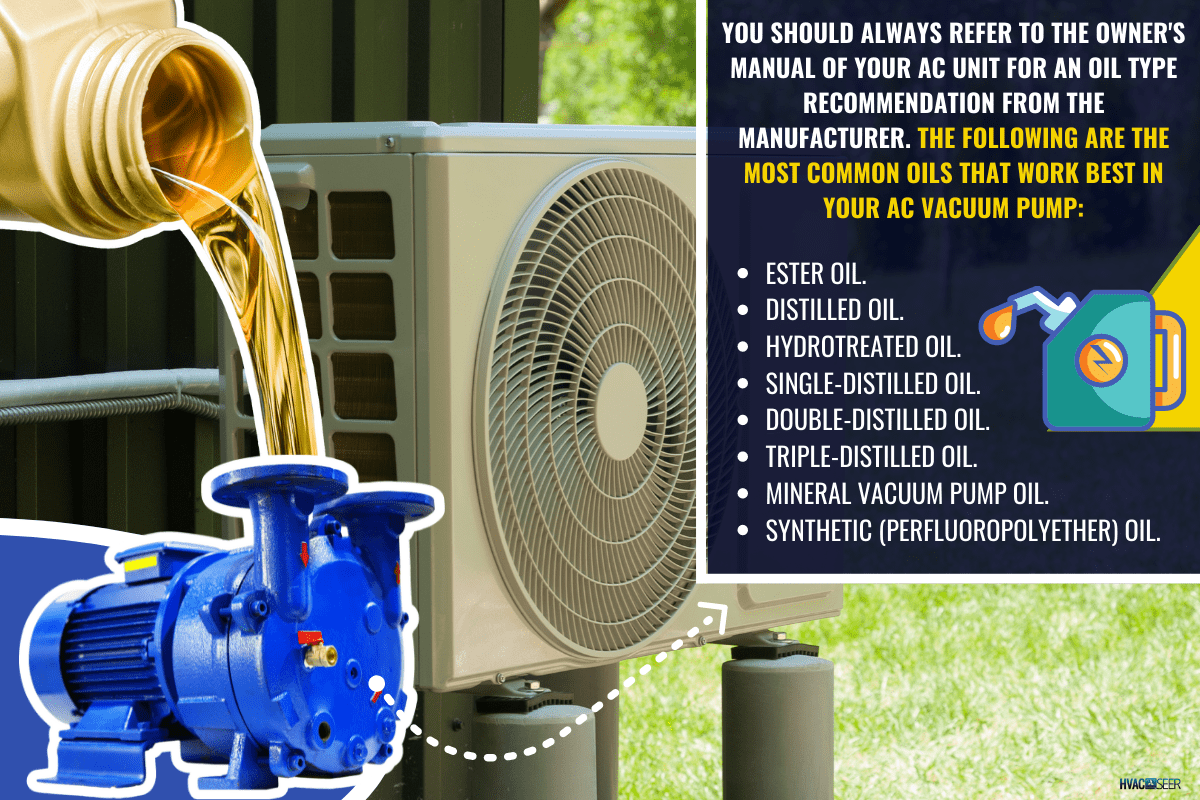
What Are The Key Factors To Consider When Choosing Vacuum Pump Oil?
The rule of thumb when choosing a vacuum pump oil is to make sure the oil meets the pump's operational requirements. It is critical to ensure that your vacuum pump is using the right oil to achieve optimal operation.
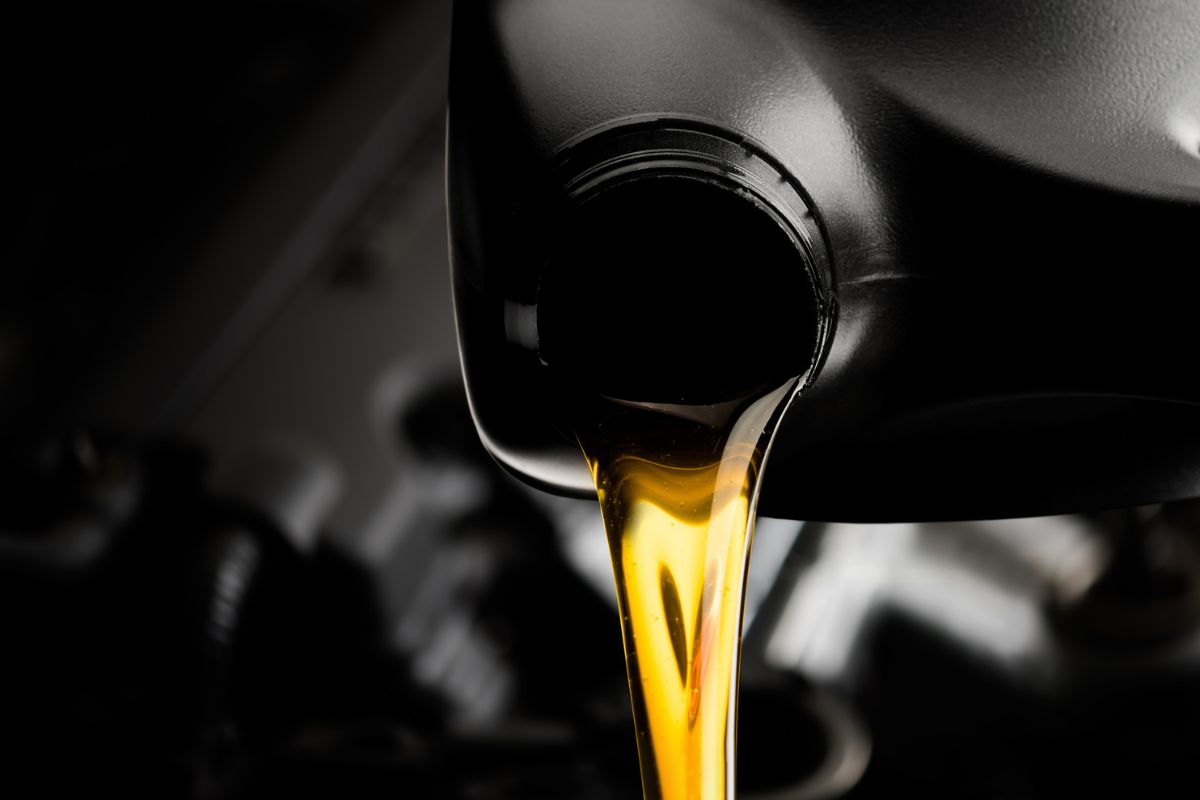
The oil in your vacuum pump helps protect its interior parts from corrosion and contamination. You should consider the following factors when selecting oil.
Volatility Status And Vapor Pressure
You should consider the oil volatility level and its vapor pressure. As the pump operates, its temperature rises as well. As a result of high volatility, the oil transforms from a liquid into vapor pressure.
In this state, oil molecules separate, causing higher pressure as vapor develops. Oil with lower volatility and vapor pressure is good because it reduces evaporation.
This will also determine how efficient your vacuum pump is when performing its task.
Oil Kinematic Viscosity
The oil's viscosity is one of the main factors you should consider when choosing your vacuum pump's oil. An oil's kinematic viscosity is a measurement of how resistant it is to move.
Thus, an oil with low viscosity is generally thin and not sticky, whereas one with high viscosity is sticky and thick. The size of the fluid's molecules has an impact on this.
The crucial factor to keep in mind is that fluid viscosity reduces with increasing temperature, which can affect both the seal between components and the flow of oil.
This is why it's vital to understand the needs and uses of your pump so you can pick the proper oil to keep everything functioning properly.
Oil Compound Base Formulation
Last but not least, you should be aware of its compound formula. Motor oil formula is different from those ingredients making up vacuum pump oil due to their very diverse purposes.
For instance, motor oil can include a rust preventive agent that would isolate from the basic fluid as a slimy residue. However, vacuum pump oil is specifically modified only for vacuum pumps and may have resistance to corrosive chemicals, anti-oxidation, and anti-foaming properties.
Understanding your vacuum pump's performance standard is essential because different oils respond in different ways to high temperatures and pressures.
That's why choosing the right oil matters; otherwise, the wrong oil can eventually cause harm to your vacuum pump's motor.
What Oil Viscosity Level Is Ideal For Vacuum Pump?
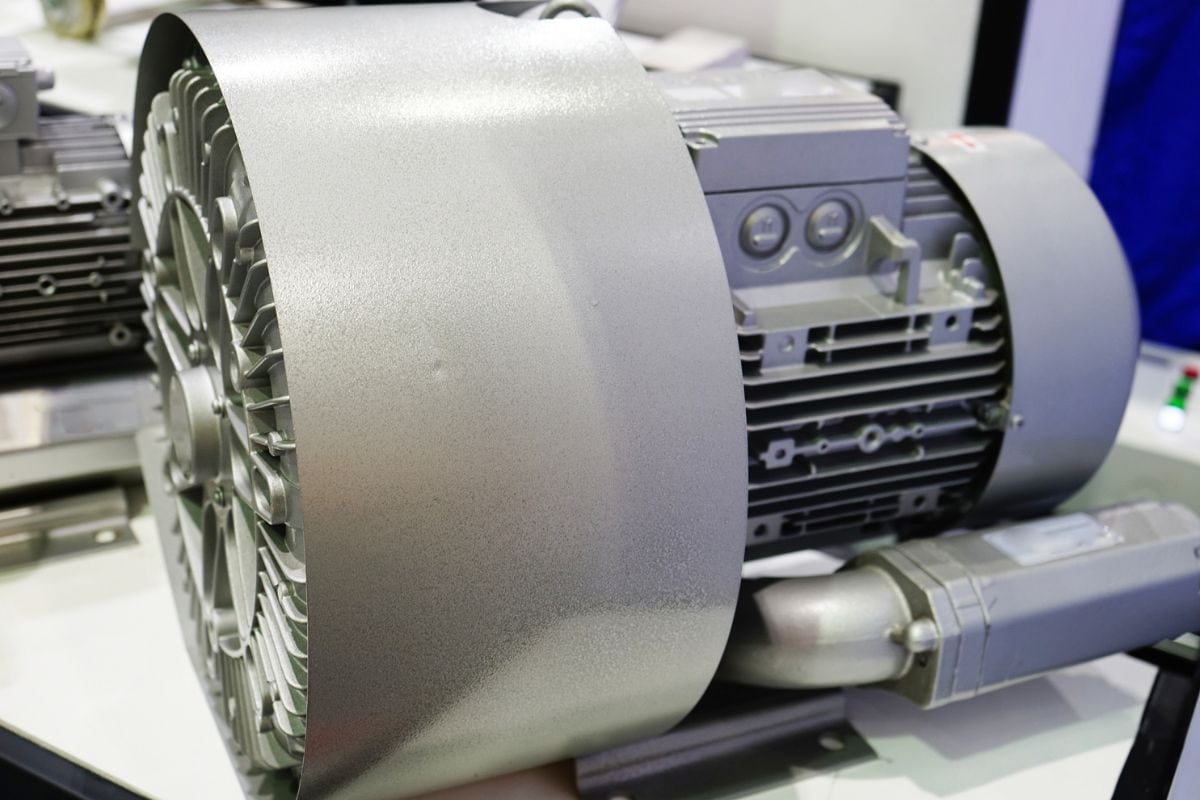
Viscosity plays a critical role in lubricating your vacuum pump's inner gears. It is what protects your pump's motor from breaking due to extreme friction caused by a lack of lubrication.
Generally, a vacuum pump oil has a wide range of viscosity levels at 25-100 cSt. This range will work under normal temperatures. The normal operating temperature of a small-size vacuum pump is around 140°F (60°C).
So, going for a viscosity of 68-77 cSt is therefore perfect because this range will handle 104°F (40°C). Remember that too high a viscosity in oil will limit its ability to properly lubricate your pump.
Which Is Better For My Vacuum Pump: Mineral Oil Or Synthetic Oil?
Vacuum pumps are increasingly made to function in more challenging situations to lessen service costs, last longer, and use less energy. Understanding first what qualities both oils contain will help you determine which oil is better for your vacuum pump. These oils have their distinct base which is designed to boost and preserve the pump's interior moving parts.
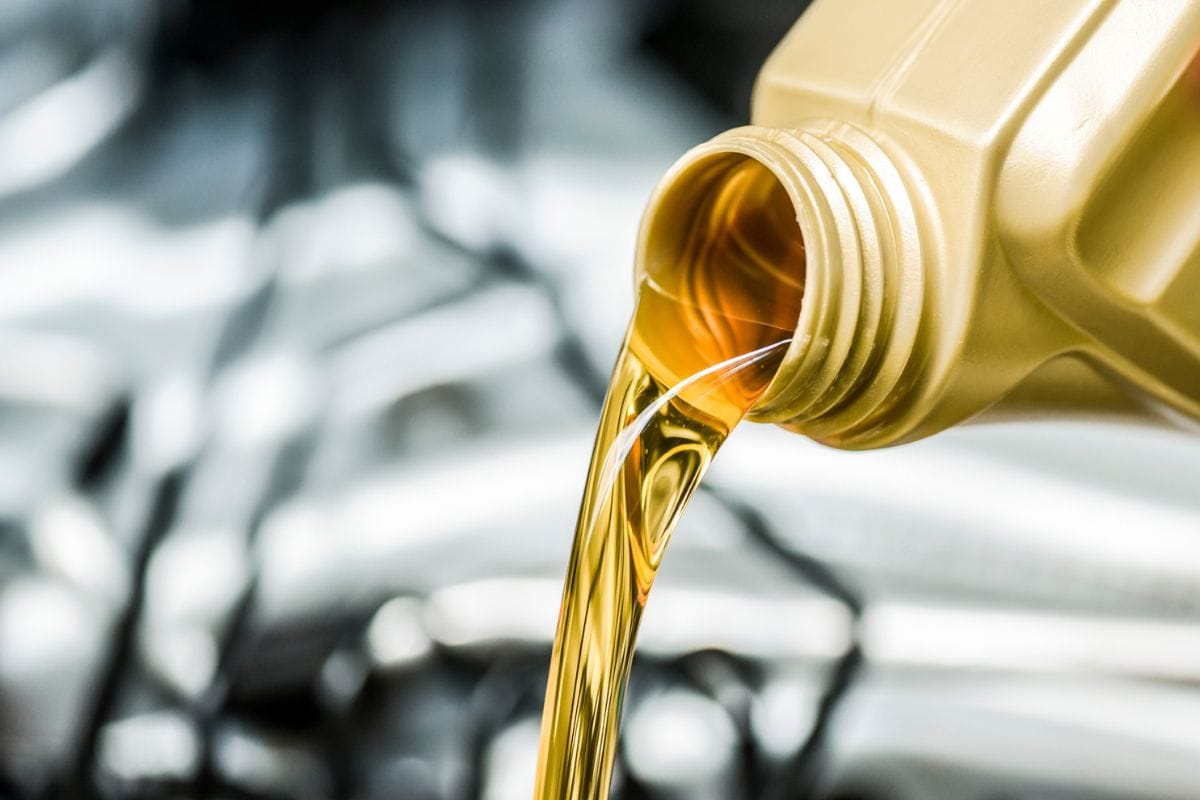
Mineral Oil
Mineral oil is a base stock, but its origin is from petroleum byproducts or vegetable oils. That's why you'll often find this oil to be inexpensive. We know it is tempting to get this oil for your vacuum pump. However, you must consider that it's not intended for high temperature tasks and comes with low oxidation tolerance.
Synthetic Oil
Meanwhile, synthetic oil is also base stock, meaning it is engineered for various specific applications. Its viscosity index is higher than mineral oil. This means oil is less sensitive to temperature swings the higher the viscosity index rate gets.
What's more, it has a high tolerance to oxidation and high-pressure operation. However, it is relatively costly, the only drawback that might leave you to thinking twice before opting for synthetic oil.
Can You Use Engine Oil For A Vacuum Pump?
Oil for rotary vacuum pumps is not your typical lubricant. You shouldn't try using engine oil on your vacuum pump. Doing so could significantly harm your pump.
Vacuum pump oil is a unique fluid that specializes in coping with high temperature function. Furthermore, it has a lower vapor pressure than hydraulic oil. Thus, it is entirely distinct from regular hydraulic oil or engine oil.
Although engine oil is flexible and can work with extreme heat conditions at 752°F to 1,112°F (400° C to 600° C), it isn't suitable for your vacuum pump.
How Much Oil Does Your Vacuum Pump Need?
This may seem quite obvious, but the right amount of oil is as critical as using the ideal oil for the pump. You shouldn't misread the pump's oil indicator as the constant level for the oil.Refer to your machine's manual as this will always depend on the vacuum pump reservoir's capacity.
That is one way to know how much exactly the right amount your vacuum pump needs for better performance. For instance, if you're using a two-stage rotary vacuum pump, it requires 500 ml of oil. Ensure not to over refill the oil to avoid early breakdown.
How Do I Know When To Change The Vacuum Pump Oil?
Proper maintenance keeps the vacuum pump running smoothly, and avoids your needing a replacement especially during a time when you might not have a handy spare pump available.
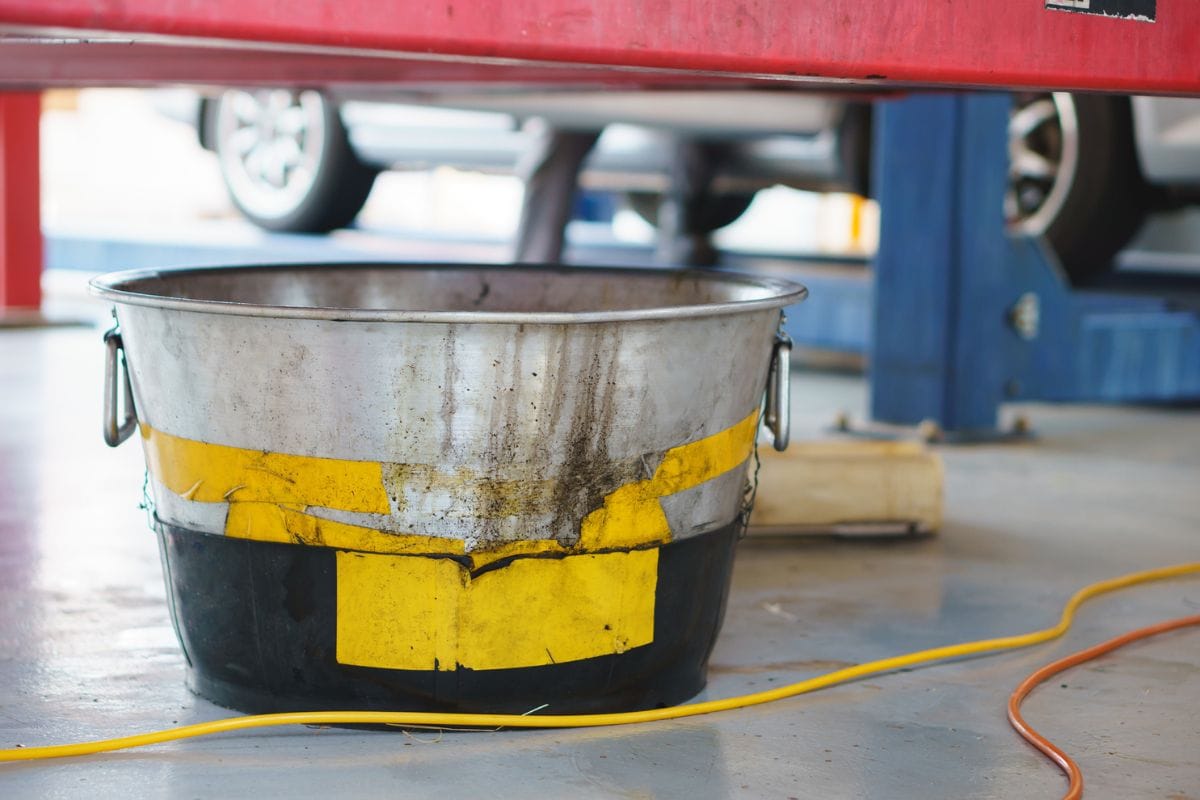
Aside from checking your user manual, you can certainly tell that your oil needs a replacement by judging its color. Once it gets darker than the original color then it is a good sign to change it.
Moreover, it is always a great idea to change the pump's oil if it's resting for about three-six months before using it.
How To Change The Vacuum Pump Oil?
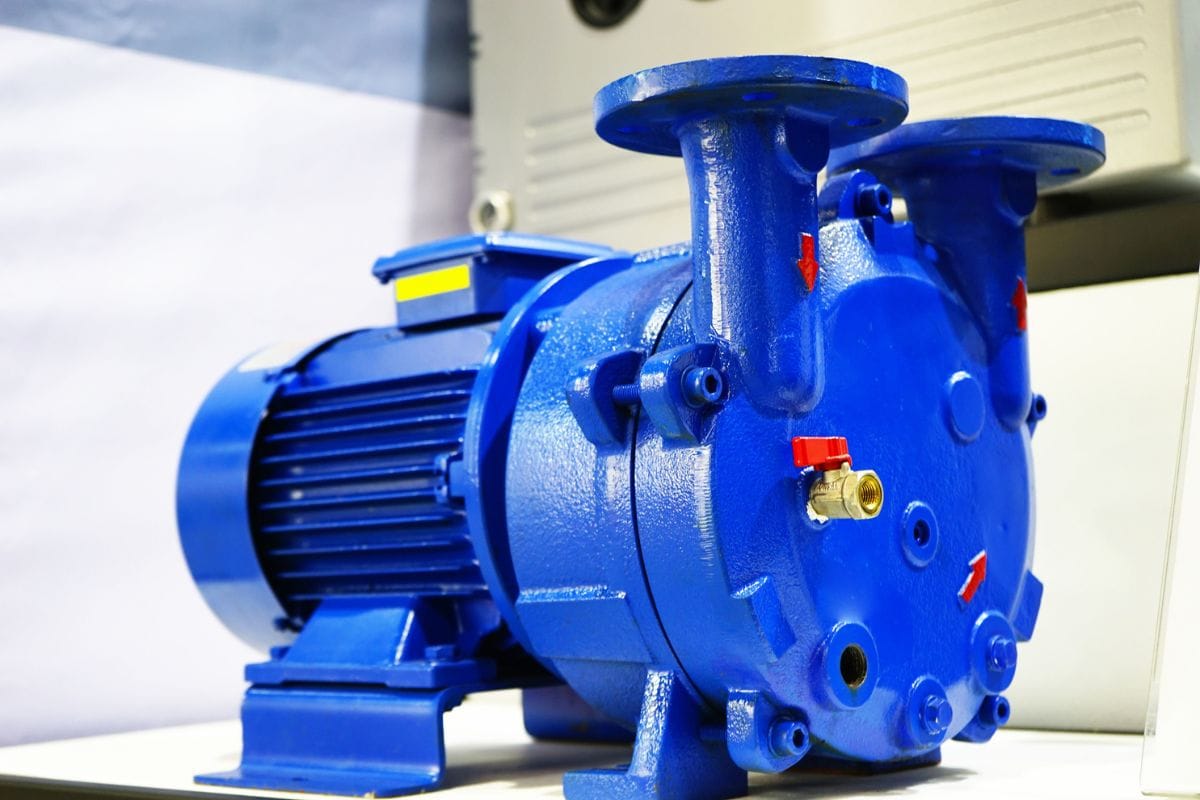
Before you proceed to the oil replacement process, you may need to gather these things first:
- Recommended oil type.
- Flathead screwdriver.
- Compatible gasket/seal.
- Waste container or bucket.
Here are our easy steps to change your vacuum pumps oil:
- Stop the pump from its current task.
- Securely place your bucket or container in line with your drain plug's opening point.
- Now remove the vacuum pumps drain plug using your flathead screwdriver.
- Allow the flow of oil to slow down before screwing back the drain plug.
- Try to switch on the pump for at least 10 seconds to loosen the remaining old oil residue.
- Now remove the drain plug again and ensure to drain all the remaining dirty old oil.
- Since you're into servicing now, it is good to change as well the drain plug's gasket. This is very beneficial, especially if corrosion is visibly noticeable.
- Next is to remove the oil-filling plug, and right after, pour your new fresh oil.
- Once all is set well, then you can now screw back in the oil fill plug along the oil drain plug.
In Closing
One of the vital keys to keeping your vacuum pump in good working status is using only the right oil for it. Just like your air conditioner, it also needs proper regular maintenance to keep serving the AC during its service schedule. So follow all our detailed information on what to consider to get the best oil for your vacuum pump.
If you want more details and knowledge about HVAC vacuum pumps, read the following blogs:
